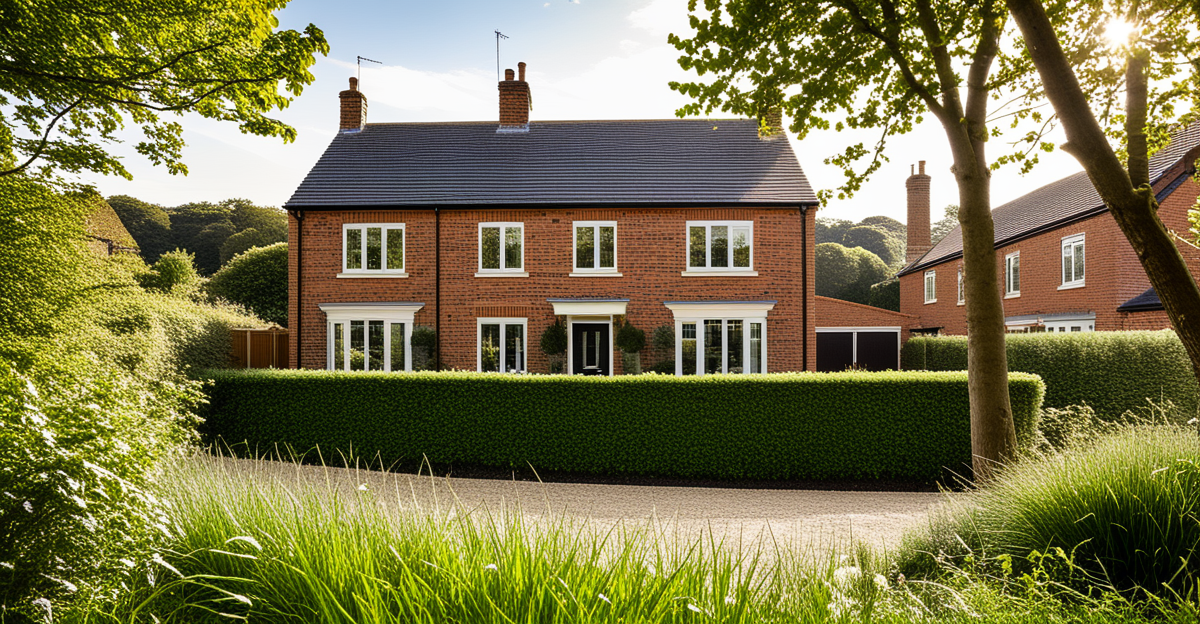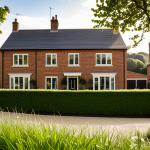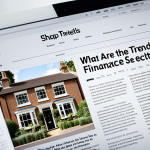Impact of Sustainable Practices on UK Real Estate Value
Sustainability in UK real estate is becoming a crucial market driver. Incorporating sustainable real estate UK features leads to tangible benefits, notably a property value increase. Buyers increasingly prefer homes with energy-efficient designs and eco-friendly details, recognizing long-term savings and environmental benefits. This growing demand means properties with green credentials tend to command higher prices.
The green building impact is clear: studies reveal properties with sustainable features can see value uplifts ranging from 5% to 15%. This is partly due to lower utility bills and enhanced comfort, which directly appeal to financially and environmentally conscious buyers.
In the same genre : What Are the Key Trends Shaping UK’s Real Estate Finance Sector?
UK-specific factors amplify this trend. Strong regulatory frameworks mandate energy performance standards, while incentives encourage developers to integrate green features early. Planning policies often favour developments with sustainability at their core, further enhancing market interest.
In sum, sustainability not only reduces environmental footprints but also positively influences market performance, making it a strategic consideration for owners, investors, and developers aiming to unlock enhanced property value.
Also to discover : How can sustainable finance practices be applied to UK real estate?
Key Sustainability Measures That Add Value
Sustainability in UK real estate thrives on concrete measures that boost appeal and worth. Core to this is energy efficiency UK property upgrades. Installing advanced insulation, solar panels, and smart heating systems significantly lowers running costs, making homes more attractive to buyers. Energy efficiency improvements often translate into a notable property value increase, reflecting reduced energy bills and enhanced comfort.
Eco-friendly materials are another cornerstone. Using sustainably sourced timber or recycled components not only lessens environmental impact but also aligns with market demand for greener homes. Properties built or renovated with eco-friendly materials tend to garner higher valuations thanks to durability and low maintenance benefits.
Certification schemes like BREEAM add an authoritative layer of value. The BREEAM certification benefits include validation of a building’s environmental credentials. This can command premium prices and faster sales in a competitive UK market. Developers benefit from the green building impact by showcasing commitment to sustainability, reassuring investors and homeowners alike. Together, these measures create a compelling proposition that drives lasting market gains.
Evidence and Case Studies from the UK Market
Research consistently confirms a clear property value increase linked to sustainability in UK real estate. A market analysis of UK green building case studies reveals that developments with certified eco-features often outperform traditional properties in both price appreciation and buyer interest. For example, homes with BREEAM certification typically command premiums of 5% to 12%, reflecting the green building impact valued by environmentally aware purchasers.
One notable UK project reported a significant return on investment (ROI) through integrating solar panels, high-performance insulation, and smart energy systems, evidencing the measurable gains of sustainable upgrades. These UK green building case studies underscore how investors and homeowners alike profit from improved energy efficiency and marketability.
Experts stress that sustainability ROI real estate is not just financial but also reputational; projects highlight commitment to environmental stewardship while satisfying regulatory demands. This dual benefit enhances prospects for quicker sales and stronger tenant retention. Collectively, these insights affirm that prioritising sustainable features delivers tangible value uplift, validating the commercial smartness of eco-conscious development and renovation in today’s UK property market.
Benefits for Homeowners, Investors, and Developers
Sustainable investment UK offers substantial benefits to homeowners, including lower energy bills and enhanced comfort. Energy-efficient homes reduce utility costs, a clear advantage that boosts daily living quality and long-term savings. This affordability makes such properties increasingly attractive in the market, driving demand.
Investors see increased rental yields and resale value from properties with sustainable features. Tenants often prefer eco-friendly homes for comfort and cost savings, creating a competitive edge for landlords. This tenant preference translates into better occupancy rates and potential premium rents, reinforcing the value of eco-conscious portfolios.
For developers, developer incentives real estate provide valuable support. Government grants and relaxed planning regulations for green buildings decrease upfront costs and accelerate project approvals. These incentives encourage early incorporation of sustainable designs, enhancing market appeal and profitability. Collectively, sustainable investment UK benefits all parties by aligning financial gains with environmental responsibility.
Factors and Considerations for Maximising Value
Maximising property value increase through sustainable renovation UK requires strategic choices focused on cost-effectiveness and market appeal. Prioritising energy-saving upgrades like advanced insulation or solar panels delivers the highest returns, as these directly reduce bills and attract buyers. Selecting eco-friendly materials that balance durability and environmental benefits further enhances appeal without excessive costs.
Navigating UK regulatory frameworks is crucial. Understanding planning policies and energy performance standards helps avoid delays and leverages developer incentives real estate, such as grants or tax relief. Securing funding early, through government programmes or green finance options, reduces upfront barriers to green projects.
Common barriers include misconceptions about costs and complexities. Many view sustainable upgrades as expensive, but careful market analysis often reveals ROI exceeds initial spend. Overcoming these challenges requires informed decision-making and expert consultation, ensuring that opportunities convert into tangible value.
Ultimately, optimising property value in sustainable real estate UK means combining smart upgrades with regulatory savvy. This approach turns potential obstacles into stepping stones, increasing both environmental and financial performance.





